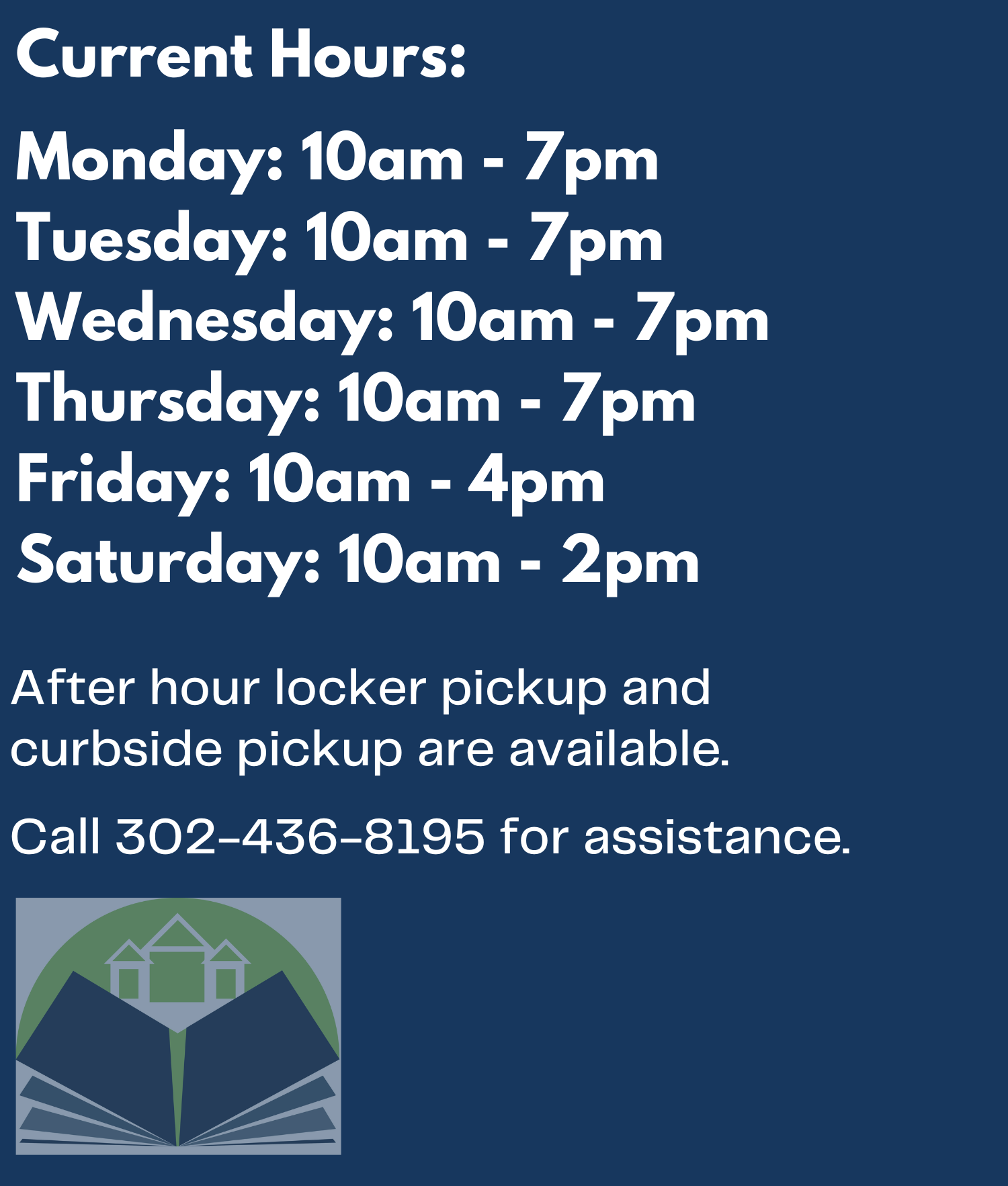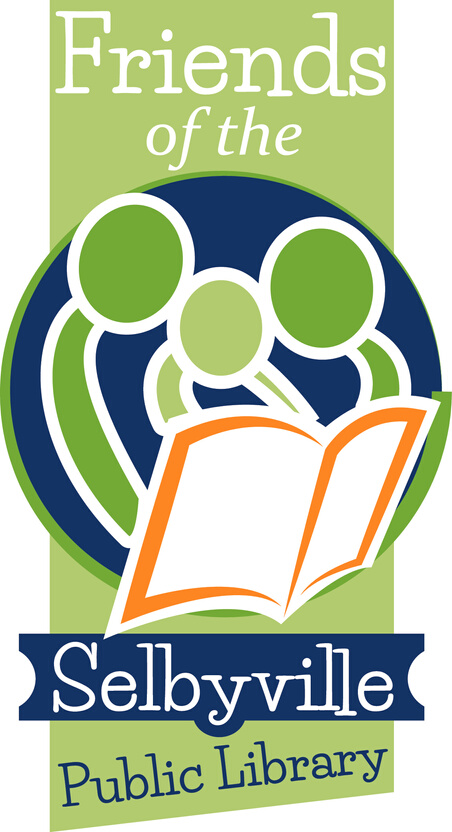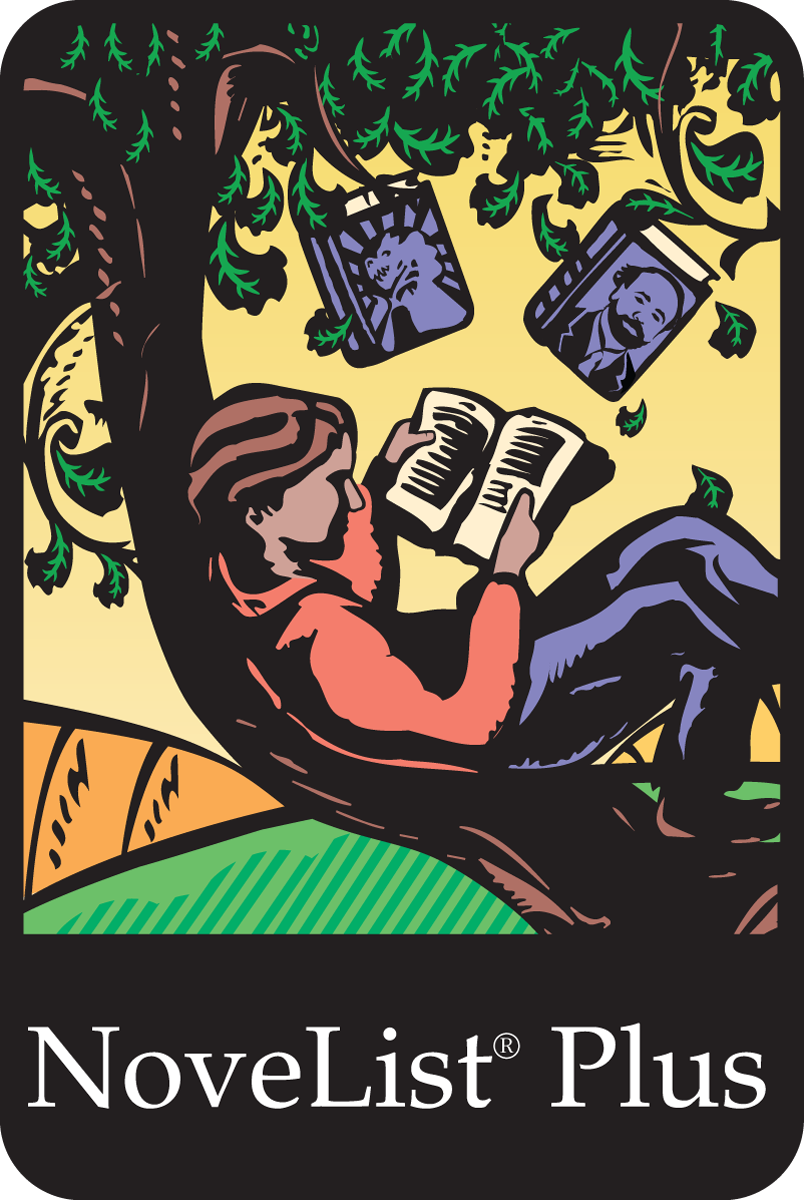Guest Pass Policy
Selbyville Public Library Guest Pass Policy
Guest Passes for computer use are for library patrons who are visiting from out of state. A patron may obtain a Guest Pass three times in one year, after which they will be required to apply for a Delaware Library Card or purchase a Guest Pass.
To obtain a Guest Pass, one of the following documentation must be provided at every visit. No Exceptions.
What we will accept:
Current, Valid - Out-of-State Driver’s License
Current, Valid – Out-of-State State ID
Passport (US or international)
Military ID of service men and women currently serving and away from home. (Photo ID)
Because parents must consent for their children to use a library card, only patrons over the age of 18 can obtain a Guest Pass. Parents may get a guest pass and sit with their child.
Any exceptions or unique situations will require approval from the Director or Assistant Director.
Guest Passes for Purchase
$2.00 for anyone that has used their 3 free passes.
Service Animal Policy
SERVICE ANIMAL POLICY
FOR PUBLIC VISITORS TO THE SELBYVILLE PUBLIC LIBRARY
1. Policy
It is the policy of the Selbyville Public Library to afford individuals with disabilities, who require the assistance of a service animal, with equal opportunity to access library property, programs, and activities.
2. Definitions
A. Service Animal
A service animal is a dog (or miniature horse, as identified below) that has been individually trained to do work or perform tasks for an individual with a disability. The task(s) performed by the dog must be directly related to the person’s disability. The dog must be trained to take a specific action when needed to assist the person with a disability.
B. Therapy Animal
A therapy animal is an animal that provides emotional support or passive comfort that alleviates one or more of the identified symptoms or effects of a disability. A therapy animal (also known as an emotional support animal or comfort animal) is not a service animal under this policy. Access for therapy animals is evaluated similar to any other request for accommodation and should be directed to the library Director.
3. Where Service Animals Are Allowed
Generally, owners of service animals are permitted to be accompanied by their service animal in all areas of the library’s facilities and programs where the owner is allowed to go. Such areas include public areas, public events, and other areas where library programs or activities are held.
4. Assessing Service Animal Status
A. Permitted Inquiries
Library personnel must permit service animal access to an event or activity with its owner when it is readily apparent that the animal is trained to do work or perform tasks for its owner. Examples include a dog guiding an individual who is blind or has low vision, pulling an individual’s wheelchair, or providing assistance with stability or balance to an individual with an observable mobility disability.
If the need for the service animal is not apparent, library personnel may only ask the following of service animal owners:
(a) Whether the service animal is required because of a disability; and
(b) What work or task the animal has been trained to perform. No further inquiries are permitted.
If the owner states that the animal is required because of a disability and that the animal has been trained to do work or a task for the owner, then the service animal must be admitted. If there is any doubt that an animal is a service animal, library personnel should admit the animal and then consult with the Director regarding future access.
Service animal owners must not be asked about the nature of their disability or for medical documentation of it. Owners shall not be asked for a special registration, identification card, license, or other documentation that the animal is a service animal, or to demonstrate the animal’s ability to perform work or tasks.
B. Library Assistance
Service animal owners are not required to register their service animal with the library. Service animal owners who regularly access the library are encouraged to contact the Director. The Director can then assist the owner by providing advance notice to library personnel that the owner and service animal are entitled to access.
5. Service Animal Owners’ Responsibilities
Service animal owners are responsible for:
(a) Keeping the service animal under their direct control at all times, such as by a harness, leash, or other tether; however, if the use of a harness, leash, or other tether interferes with the service animal’s safe, effective performance of work or tasks, or if the owner’s disability prevents the use of such devices, then the service animal must be under the owner’s control through voice control, signals, or other effective means;
(b) Ensuring the service animal does not disturb or disrupt normal academic or administrative functions;
(c) Immediately cleaning up after the service animal and properly disposing of the service animal’s waste or other debris; and
(d) Complying with any relevant city, county, and/or state license and leash laws while the service animal is on library premises.
The owner is responsible for damage or injury caused by the service animal.
6. Removal of Service Animals from Library Facilities
Library personnel may only ask service animal owners to remove their service animal from library premises or from the immediate area as follows:
(a) If the service animal is not under the owner’s direct control or the service animal is disturbing or disrupting the normal library routines, then the owner must first be given an opportunity to get the animal under control. If the disruption or disturbance continues, then the owner may be asked to remove the animal; or
(b) If the presence, behavior, or actions of the service animal constitutes an immediate risk or danger to people or property, the owner can be asked to immediately remove the animal and 911 (emergency assistance) may be contacted.
If asked to remove the service animal, the owner must be offered the opportunity to return to the library premises or the immediate area without the service animal and be provided with reasonable assistance at that time to participate in the library services or programs.
A service animal may only be excluded for an individual event based on its or the owner’s behavior at that event. The service animal or its owner cannot be excluded from future events based on a problem at a past event.
Owners with concerns about the removal of their service animal should contact the Director.
7. Violations of Policy
Depending on the seriousness of the animal’s conduct or repeated conduct, service animals may be excluded from library property. If a service animal is excluded, the Director is available to assist in evaluating reasonable accommodations for the owner.
8. Service Animals in Training
Service animals in training may be permitted, but are not entitled to the same access as service animals. The Director has the discretion whether to permit access to service animals in training.
9. Miniature Horses
The above provisions with regard to service dogs shall also apply to miniature horses that have been individually trained to do work or perform tasks for people with disabilities. Miniature horses generally range in height from 24 inches to 34 inches measured to the shoulders and generally weigh between 70 and 100 pounds. The provisions above with regard to dogs are identical with regard to miniature horses, assuming the horse is housebroken; the library facilities can accommodate the miniature horse’s type, size, and weight; and the miniature horse’s presence will not compromise legitimate safety requirements necessary for safe operation of the library.
Meeting Room Policy
Sussex County, Delaware
County Libraries
Meeting Room Policy
The County libraries welcome the use of their meeting rooms for public activities of a civic nature. Library meeting rooms are open to the public and available for public programs and meetings sponsored by non-profit, civic, educational, and cultural groups regardless of the beliefs of their members. The Sussex County Council, Sussex County Department of Libraries, and the Library neither endorse, approve or disapprove the viewpoints of those organizations holding meetings or programs in the library. The rooms are not available for purely social purposes, for the benefit of private individuals, commercial concerns, or where disorder or disruption of regular library services is likely to occur as determined by the Library. There is no charge to nonprofit organizations for use of the rooms, but programs and meetings must be free of registration, admission or other charges and be open to the public. Rooms will be booked according to the following priorities:
- Priority 1: Library programming/use
- Priority 2: Official meetings and programs sponsored by or conducted by Sussex County or other government entities
- Priority 3: All other approved programming by nonprofit, civic, educational, and cultural groups.
Use Requirements
- Promotional signage for display in the Library at the time of the program must be approved by the Library management before posting. The display of approved signage is limited to one hour prior to the program and the program’s duration.
- Advanced advertising of a program will be posted according to Library rules concerning such posting. It cannot state or imply that the Library is a program sponsor unless agreed to by the Library.
- Fastenings (tapes, tacks, etc.) cannot be used on any meeting room walls, floors or furniture.
- Materials or equipment belonging to the booking organization are solely the organization’s responsibility. Library does not assume any responsibility or provide storage for private materials and equipment.
- Audiovisual presentations must conform to current copyright law.
- Accidents must be reported immediately to the library staff.
- All facilities must be left clean after use or a cleaning fee may be assessed.
- The organization is responsible for any damage to the facility, including replacement/repair costs.
- The organization must arrange the meeting room for its use and return it to its original arrangement before leaving. The library does not provide custodial assistance for changing room arrangements or moving private materials.
- Programs and meetings must be open to all members of the public. No admission fees or other charges are permitted.
- Program publicity may indicate location and time, but cannot state or imply that the Library is a program sponsor/co-sponsor unless specifically agreed to by the Library.
- The organization cannot use the library’s name or address as its official address, nor shall it appear on any organization’s brochures, etc. as a sponsor.
- Groups or organizations using Library meeting rooms must:
- Ensure that no alcoholic beverages are served by the group or organization or its membership;
- Enforce the tobacco-free and vape-free policy within the building;
- Adhere to posted room capacity limitations;
- Follow fire regulations – exits must remain accessible;
- Ensure that children/teen meetings have adult supervision.
- Respect the fact that the meeting is being held in a library and, as such, noise levels should be kept to a minimum.
- Acknowledge and accept the Sussex County Acceptable Library Use Policy and the statewide Delaware Libraries Internet Acceptable Use Policy and agree to abide by its terms and conditions as it may relate to any internet usage at the meeting on Library premises regardless of whether such usage is through the entity’s own computer brought onto the premises or a Library computer which is already on-site.
Reservation Requirements
- Reservation requests for the meeting room can be made between two weeks and up to six months in advance of the needed date.
- Recognizing that weeknights are high-demand time slots, the library reserves the right to ensure equitable access for as many community groups as possible.
- The library reserves the right to cancel meeting room reservations.
- The organization’s chief officer or other responsible person will file a Reservation Form with the library, available at the Circulation Desk. No reservations will be made or confirmed until the Reservation Forms are returned to the library. Confirmation or denial of the request will be returned to the responsible person by the Library.
- Organization must have general liability insurance in an amount sufficient to cover any property damages that may occur to the Library or personal injuries that may occur on-site.
- Organizations hereby agree to hold harmless and defend Sussex County, the Library, their agents, servants, or employees, from and against any and all losses, claims, actions, damages, liabilities, and expenses, including , but not limited to, those in connection with loss of life, bodily and personal injury or damage to property of whatever kind or nature, including attorney's fees and costs, proximately caused by the negligence of the organization, its agents, or employees, in connection with any meeting or event and the performance of the organization’s agreement with the Library.
- Organization will provide evidence of non-profit status.
- When the responsible person that signs for the group has changes, a new form must be filed with the Library.
- Requests for use of library equipment must be made at the time of booking. The organization must provide a qualified operator and assume financial responsibility for damage to or replacement of equipment.
- Organization shall report attendance numbers to the Library.
- Cancellations should be made as promptly as possible. Organizations that repeatedly do not show or cancel bookings may be denied future use of the room.
Prohibited Use
Library meeting rooms may not be used for private social purposes; the conduct of regular religious ceremonies or services; political campaign activity relating to any specific candidate; commercial concerns; any illegal activity; or any activity that in the judgment of the Library poses a threat to the life, safety, or property of any individual. The Library reserves the right to deny future meeting room use to:
- Groups or organizations whose previous conduct has not complied with Library meeting room policies and procedures as state; and/or
- Whose conduct has resulted in damage or interfered with the other patrons’ Library use.
Complaints
Problems or complaints related to this policy should be submitted in writing to the Director of the Department of Libraries.
Draft – 6/1/2009, revised 11/9/2009
Attorney Review – 11/2009
Approved by Library Advisory Board – 11/18/2009 Amended on 7/22/2016
Acceptable Use Policy
SUSSEX COUNTY LIBRARY USE POLICY
By entering a Sussex County library, you are making a commitment to act courteously toward others; to act respectfully with regard to public property and to follow all rules of this facility. Library users will conduct themselves so that they will not interfere, by actions or speech, with the legitimate rights of other library users. In order to enjoy the library and allow others the same opportunity, the library has established the following rules:
- Children under the age of 12 must be accompanied by a responsible adult, age 18 or over
- Follow posted computer Acceptable Use Policy
- Keep noise/activity to a low level that allows others in area to work/function successfully
- Shoes and shirts required
- Service animals welcome
- Silence cell phones and take calls in lobby or outside
- Only covered non-alcoholic beverages allowed
- Follow specific posted rules for the Teen and Children’s library areas
- Adult patrons in the children/teen areas who are not engaged in a library activity that uses children/young adult materials nor are caregivers for a child/teen may be asked to relocate to other library areas.
In order to provide a friendly and safe environment, the following is NOT PERMITTED in the library or on the grounds:
- Engaging in any activity in violation of federal, state, local or other applicable law, regulations, ordinance or statute
- Threatening, harassing, offensive, disruptive or intimidating language or behavior
- Soliciting or sales of any type not related to library activities
- Creating unjustified, intentional noise at a level which adversely affects any individuals who are working in the area and their ability to function
Adopted by Selbyville Public Library Board of Commissioners, March 19, 2015











